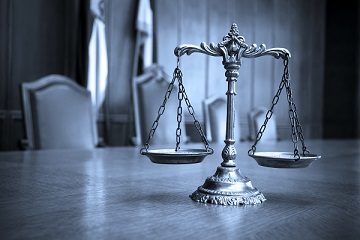Chapter 13 Bankruptcy Attorney Connecticut

We provide chapter 13 bankruptcy lawyer services to people near Hartford and New Haven who are facing overwhelming debt. If you’re facing legal action because of your debts, read on to find out more about our chapter 13 bankruptcy services. Our attorneys will help you get back on track.
Should I file Chapter 13 bankruptcy?
Even if you don’t qualify for Chapter 7 bankruptcy, you still have options with Chapter 13 Bankruptcy. A Chapter 13 allows you to reduce your overall debt and repay it over a three- to five-year period.
What’s more, it may be a highly effective tool in preventing home foreclosure. It is also available to individuals who do not qualify for Chapter 7. At The Law Offices of Ronald I. Chorches, our attorneys provide relief through Chapter 13 in Hartford, Connecticut, and for consumers throughout the state.
What Chapter 13 Bankruptcy Can Do For You
Our law office has vast experience in helping you prepare a workable plan under Chapter 13. Once the plan is put in place, it provides you relief by:
- Stopping a foreclosure proceeding: the minute a bankruptcy petition is filed, a pending foreclosure procedure is stopped
- Preventing home foreclosure through a forbearance agreement or by allowing you to resume your monthly payment and repay the arrears over a three- to five-year period
- Stopping harassment by creditors and collection agencies
- Stopping lawsuits, wage garnishments, bank account levies and repossessions
- Provides you with an automatic stay which prohibits creditors from taking further action against you
- Eliminating unsecured debt, such as credit card debt
- Relieving stress on you and your family
- Allowing you to pay off non-dischargeable debts over a three- to five-year period
Understanding the Basics
Sometimes, even people with steady incomes may struggle with overwhelming debt. Filing for Chapter 13 bankruptcy may help you regain control of your finances, without giving up property you might otherwise have lost. In order to know if this is the right option for you and what to expect from the process, it is helpful to have an understanding of the basics of Chapter 13 bankruptcy.
Eligibility requirements
Chapter 13 bankruptcy protection is not available to everyone who is in debt. To qualify, you cannot have secured debts in excess of $1,149,525 or more than $383,175 in unsecured debts. Except when approved by the court in emergency situations, people must complete credit counseling with an approved agency within 180 days before filing.
People cannot file for Chapter 13 bankruptcy if they have had a prior filing dismissed within the 180 preceding days because they willfully did not comply with a court order or neglected to appear in court.
If you have a job and a home and you do not pass the means test for Chapter 7 bankruptcy, chances are you will qualify for Chapter 13. It is often called the wage earner plan or debt repayment plan. You must agree to make your best effort to pay off as much of the debt as possible as proposed in your plan of reorganization.
You will make one monthly payment to the Chapter 13 trustee, the amount of which is determined by your monthly take-home pay, less your monthly expenses. However, you don’t have to figure out which of your debtors gets what. The Chapter 13 trustee distributes the payments to your creditors. After three to five years, your remaining debts will be discharged.
Repayment plan
Within 14 days of filing a Chapter 13 petition, people must submit a debt repayment plan. Filers are required to contribute all of their disposable income as regular installments to their creditors. Such plans must account for the payment of all their priority claims in full.
If they want to retain the collateral used for any of their secured debts, they must pay at least the collateral’s value through the Chapter 13 repayment plan. Chapter 13 filers may continue making their regular payments on debts, such as their mortgage or a car loan, provided they make up any past due amount through their repayment plans.
341 Meeting
Between 21 and 50 days after filing a petition for Chapter 13 bankruptcy, the 341 meeting is held. More commonly referred to as the meeting of the creditors, those to whom the filers owe debts may choose to attend this proceeding. Attendance at the meeting of the creditors is mandatory for those seeking bankruptcy protection, who are placed under oath by the bankruptcy trustees.
During the meeting, the creditors are permitted to ask questions about people’s income, expenses or repayment plans. Those involved may address and attempt to resolve any issues with the repayment plan during the 341 meeting.
Debt discharge
Once the necessary debts are paid off through people’s Chapter 13 plans, certain remaining debts may be discharged. Through the Chapter 13 discharge, people may be relieved of their responsibility for most of their unsecured debts and other short-term financial obligations.
Mortgages, alimony or child support debts, specific taxes and other particular long-term financial responsibilities cannot be discharged.
Seeking Legal Guidance
Dealing with debt and navigating their legal options may be challenging for people in Connecticut. As such, those who are struggling financially may find it beneficial to consult with a lawyer. An attorney may help them understand their rights and options, as well as guide them through the filing process.
Get In Touch With Us
For a free, confidential consultation about Chapter 13 bankruptcy, please contact us online or call The Law Offices of Ronald I. Chorches at 860-563-3955. We have offices in Wethersfield and Winsted. Furthermore, we are easily reachable from the cities of Hartford, West Hartford, East Hartford and Manchester.
